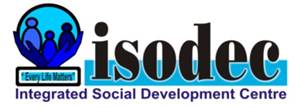A Deputy Minister for Health, Hon. Kingsley Aboagye Gyedu has bemoaned accessibility to quality medicine in the ECOWAS sub-region still remains a major challenge despite the concerted effort by various governments and development partners.
Hon. Gyedu who spoke at the launch of ECOWAS Medicines Regulatory Harmonization Project in Accra last week noted that quality of life of people is important and it is dependent on the quality of drugs people take.
“We therefore look forward to seeing that the capacities of the regulatory authorities on the continent are developed to mitigate the challenges and the risks associated with healthcare.
“I am persuaded that our work and efforts shall be crowned with the success which will permit the circulation of quality efficacious and safe medicine in all the ECOWAS member state.”
According to him, an assessment by New Partnership for Africa Development (NEPAD) and West Africa Health Organization (WAHO) in 2011 revealed that, the medicine regulatory systems in the sub-Saharan African countries are affected by fragmented legal framework, limited autonomy, and lack of sustainable funding, poor infrastructure and institutional capacity to meet the requirement of the World Health Organization (WHO).
Many countries deal with regulatory issues independently, which means that the manufacturers have to make a formal registration in every country, and each country’s regulatory agency will assess whether the drug is right for its market.
These assessments may include visits to the manufacturing country to determine whether medicines are produced using good manufacturing systems and processes. What is needed is a single agency, which can do all this work once (rather than 50+ times) and then allow applicants and individual countries to benefit from it.
The launch was preceded with a conference which was meant to provide a platform for stakeholders to brainstorm on the role of ethical and regulatory approval of clinical trials of new medicines. With many neglected tropical diseases, mechanisms need to be found to encourage greater research and ethical clinical testing to find solutions for these diseases.
Delegates were drawn from across the continent, as well as from industry and international regulatory agencies.
By Mohammed Suleman














